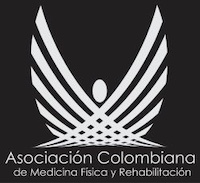Disreflexia autonómica: conceptos esenciales desde la medicina física y la rehabilitación
DOI:
https://doi.org/10.28957/rcmfr.367Palabras clave:
Médula espinal, traumatismos de la médula espinal, disreflexia autónoma, rehabilitación, terapiaResumen
El traumatismo de la médula espinal es una condición frecuente a nivel mundial, provoca impacto sobre la funcionalidad y genera un elevado índice de discapacidad. Presenta manifestaciones motoras, sensitivas y, adicionalmente, autonómicas, siendo estas últimas una causa importante de morbilidad y mortalidad. Las lesiones medulares en niveles superiores a T6 pueden generar disreflexia autonómica (DA), que se manifiesta principalmente con hipertensión arterial y otros síntomas autonómicos que se desencadenan por reflejos simpáticos no modulados, liberados por una gran variedad de estímulos viscerales y somáticos. Las manifestaciones clínicas de la DA generan complicaciones adicionales al cuadro clínico e incluso pueden generar la muerte del paciente. Por tanto, es de vital importancia el conocimiento de la patología, la identificación precoz y el manejo de la DA. En el presente artículo se realiza una revisión narrativa sobre la DA con el objetivo de dar a conocer la definición, la fisiopatología y el manejo actual.
Referencias bibliográficas
Sabre L, Rekand T, Asser T, Kõrv J. Mortality and causes of death after traumatic spinal cord injury in Estonia. J Spinal Cord Med. 2013;36(6):687-694. Disponible en: http://doi.org/10.1179/2045772313Y.0000000120
K arlsson A . Autonomic dysref lexia. Spinal Cord. 1999;37(6):383-391. Disponible en: http://doi.org/10.1038/sj.sc.3100867
Eldahan KC, Rabchevsky AG. Autonomic dysref lexia after spinal cord injur y: Systemic pathophysiology and methods of management. Auton Neurosci. 2018;209:59-70. Disponible en: http://doi.org/10.1016/j.autneu.2017.05.002
Canon S, Shera A, Phan NMH, Lapicz L, Scheidweilwer T, Batchjelor L, et al. Autonomic dysreflexia during urodynamics in children and adolescents with spinal cord injury or severe neurologic disease. J Pediatr Urol. 2014;11(1):32.e1-32.e4. Disponible en: https://doi.org/10.1016/j.jpurol.2014.08.011
Lindan R, Joiner E, Freehafer AA, Hazel C. Incidence and clinical features of autonomic dysreflexia in patients with spinal cord injury. Spinal Cord. 1980;18(5):285-292. Disponible en: https://doi.org/10.1038/sc.1980.51
Hiekey KJ, Vogel LC, Willis KM, Anderson CJ. Prevalence and etiology of autonomic dysreflexia in Chiloren with spinal cord injuries. J Spinal Cord Med. 2004;27(Supl1):S54-S60. Disponible en: http://doi.org/10.1080/10790268.2004.11753786
Krassioukov AV, Furlan JC, Fehlings MG. Autonomic dysreflexia in acute spinal cord injury: An under-recognized clinical entity. J Neurotrauma. 2003;20(8):707-716. Disponible en: https://doi.org/10.1089/089771503767869944
Curt A, Nitsche B, Rodic B, Schurch B, Dietz V. Assessment of autonomic dysref lexia in patients with spinal cord injury. J Neurol Neurosurg Psych. 1997;62(5):473-477. Disponible en: http://doi.org/10.1136/jnnp.62.5.473
Furusawa K, Tokuhiro A, Sugiyama H, Ikeda A, Tajima F, Genda E, et al. Incidence of symptomatic autonomic dysreflexia varies according to the bowel and bladder management techniques in patients with spinal cord injury. Spinal Cord. 2011;49(1):49-54. Disponible en: http://doi.org/10.1038/sc.2010.94
Llewellyn-Smith IJ. Anatomy of synaptic circuits controlling the activity of sympathetic preganglionic neurons. J Chem Neuroanat 2009;38(3):231-239. Disponible en: http://doi.org/10.1016/j.jchemneu.2009.06.001
Tang FR, Tan CK, Ling EA. A light-microscopic study of the intermediolateral nucleus following injection of CB-HRP and fluorogold into the superior cervical ganglion of the rat. J Auton Nerv Syst 1995;50(3):333-338. Disponible en: http://doi.org/10.1016 0165-1838(94)00104-r
Thomas GD. Neural control of the circulation. Adv Physiol Educ. 2011;35(1):28-32. Disponible en: http://doi.org/10.1152/advan.00114.2010
Zhu H, Roth BL. Silencing synapses with DREADDs. Neuron. 2014;82(4):723-725. Disponible en: https://doi.org/10.1016/j.neuron.2014.05.002
Kirshblum S, Eren F, Solinsky R, Gibbs K, Tam K, DeLuca R, et al. Diastolic blood pressure changes during episodes of autonomic dysreflexia. J Spinal Cord Med. 2021;44(5):720-724. Disponible en: http://doi.org/10.1080/10790268.2020.1757273
Allen KJ, Leslie SW. Autonomic Dysreflexia. [Updated 2022 May 27]. En: StatPearls [Internet]. Treasure Island (FL): St atPearls Publishing; 2022 Enero. Disponible en: https://www.ncbi.nlm.nih.gov/books/NBK482434/
Krassioukov A, Warburton DE, Teasell R, Eng JJ, Spinal Cord Injury Rehabilitation Evidence Research Team. A systematic review of the management of autonomic dysreflexia after spinal cord injury. Arch Phys Med Rehabil. 2009;90(4):682–695. Disponible en: https://doi.org/10.1016/j.apmr.2008.10.017
Lockwood G, Durkee C, Groth T. Intravesical Botulinum Toxin for Persistent Autonomic Dysreflexia in a Pediatric Patient. Case Rep Urol. 2016;2016:4569684. Disponible en: https://doi.org/10.1155/2016/4569684
Grobecker H. Pharmacology and clinical pharmacology of organic nitrates. Eur J Clin Pharmacol. 1990;38(S1):S3-S7. Disponible en: https://doi.org/10.1007/BF01417558
Vallès M, Benito J, Portell E, Vidal J. Cerebral hemorrhage due to autonomic dysreflexia in a spinal cord injury patient. Spinal Cord. 2005;43(12):738-740. Disponible en: http://doi.org/10.1038/sj.sc.3101780
Chobanian AV, Bakris GL, Black HR, Cushman WC, Green LA, Izzo JL Jr, et al. Seventh report of the Joint National Committee on Prevention, Detection, Evaluation, and Treatment of High Blood Pressure. Hypertension. 2003;42(6):1206-1252. Disponible en: https://doi.org/10.1161/01.HYP.0000107251.49515.c2
Furlan JC. Autonomic dysreflexia following acute myelitis due to neuromyelitis optica. Mult Scler Relat Disord. 2018;23:1-3. Disponible en: https://doi.org/10.1016/j.msard.2018.04.007
Phillips AA, Elliott SL, Zheng MMZ, Krassioukov AV. Selective alpha adrenergic antagonist reduces severity of transient hypertension during sexual stimulation after spinal cord injury. J Neurotrauma. 2015;32(6):392-396. Disponible en: https://doi.org/10.1089/neu.2014.3590
Harman KA, DeVeau KM, Squair JW, West CR, Krassioukov AV, Magnuson DSK. Effects of early exercise training on the severity of autonomic dysref lexia following incomplete spinal cord injury in rodents. Physiol Rep. 2021;9(15):e14969. Disponible en: http://doi.org/10.14814/phy2.14969
Eldahan KC. Targeting maladaptive plasticity after spinal cord injury to prevent the development of autonomic dysreflexia [Theses and Dissertations - Physiology - 41]. University of Kentucky; 2019. Disponible en: https://uknowledge.uky.edu/physiology_etds/41/
Jacobs PL, Nash MS. Exercise Recommendations for Individuals with Spinal Cord Injury. Sports Med. 2004;34:727–751. Disponible en: https://doi.org/10.2165/00007256-200434110-00003
Biering-Sørensen F, Biering-Sørensen T, Liu N, Malmqvist L, Wecht JM, Krassioukov A. Alterations in cardiac autonomic control in spinal cord injury. Auton Neurosci. 2018;209:4-18. Disponible en: https://doi.org/10.1016/j.autneu.2017.02.004
Cómo citar
Descargas
Publicado
Número
Sección
Licencia

Esta obra está bajo una licencia internacional Creative Commons Atribución-NoComercial-SinDerivadas 4.0.

| Estadísticas de artículo | |
|---|---|
| Vistas de resúmenes | |
| Vistas de PDF | |
| Descargas de PDF | |
| Vistas de HTML | |
| Otras vistas | |



